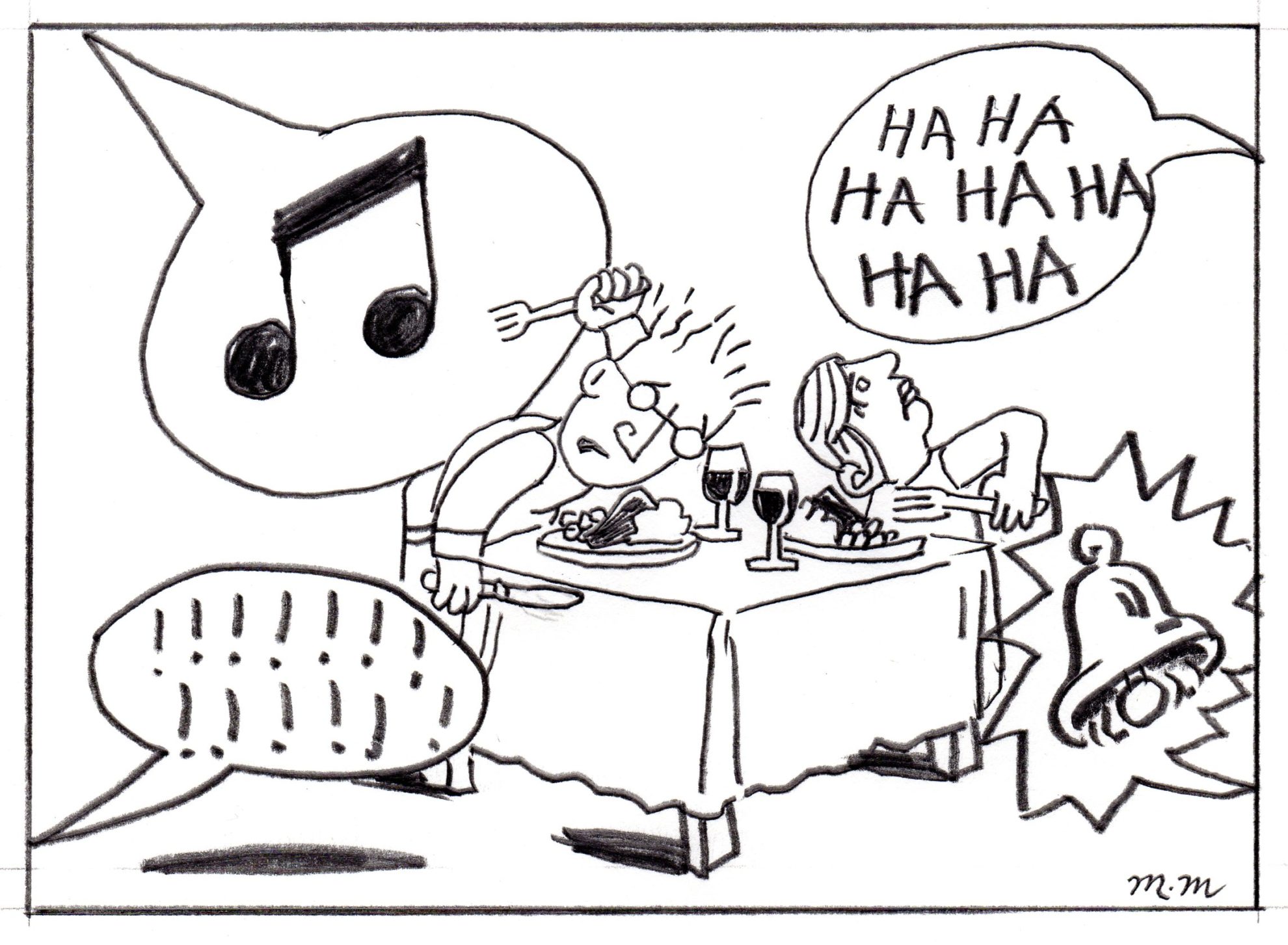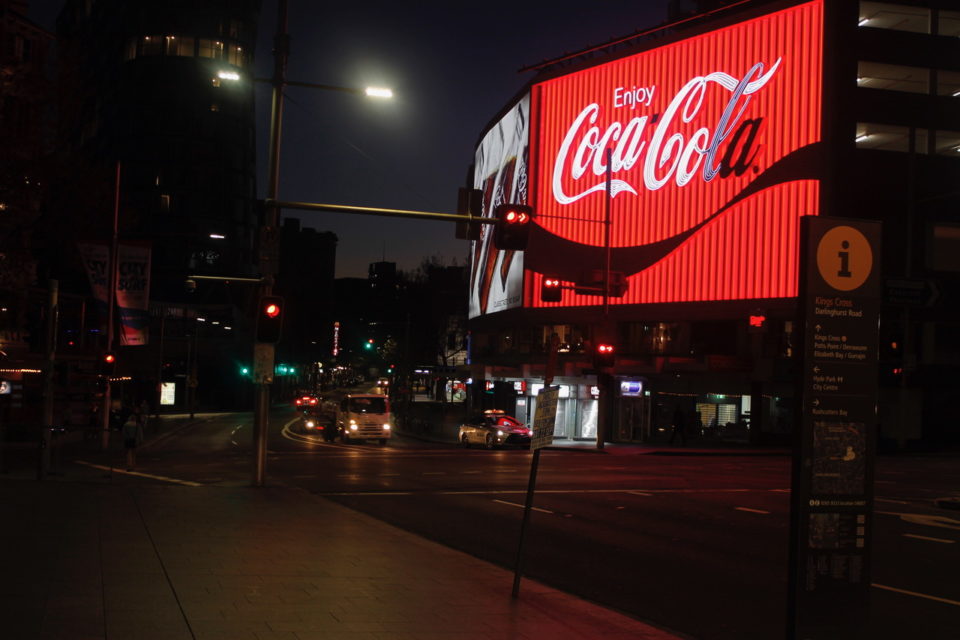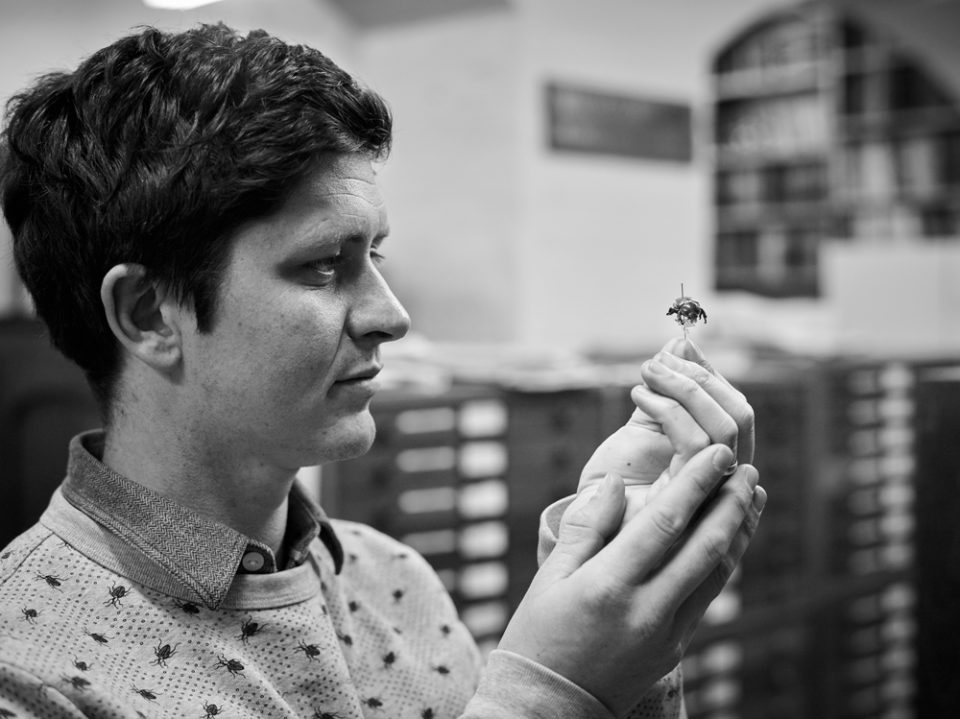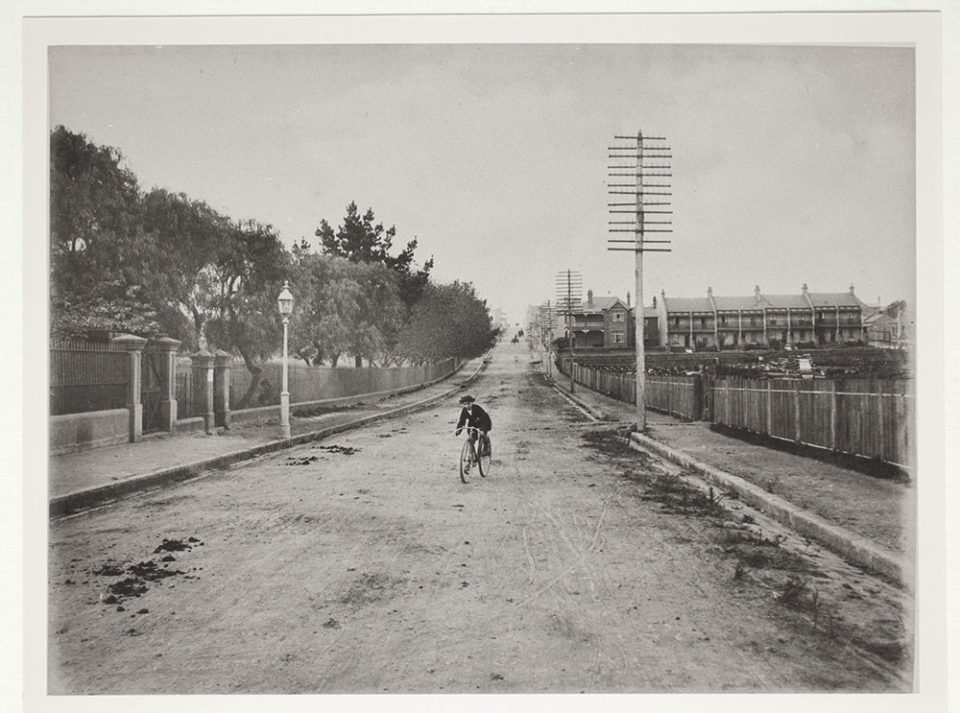“You what? You bonked a frypan?”
“I’m… going… to… Thailand!”
“Oh, right, sorry, I thought you said…don’t worry about it. It’s so effing loud in here.”
“Yes, thanks, I will have a beer.”
Earlier this year I walked into a Melbourne restaurant. It was a large, open space with bare surfaces, packed with patrons, many obviously letting their hair down at the end of the working week. At first, it seemed no different to any similar Sydney establishment. But something wasn’t the same.
The place wasn’t noisy.
Bleak City generally seems to excel at cosy and quiet. But in Sydney cafes, bars and restaurants, noise seems to be a selling point rather than a deterrent. It’s as if punters believe there’s a direct correlation between how loud a joint is and how much fun they’re having; that shrieking and shouting is a measure of individual awesomeness, rather than pitiful attention seeking.
Many staff seem to like it noisy. Booming music, raucous chatter and laughter keep the waiters pumped, even if they can’t hear the orders. Proprietors often don’t mind either, since studies show people drink faster, and more, when the music volume is turned up.
Me, I resent shelling out good money to yell at the person sitting right next to me. There are plenty of places where I can get stressed and annoyed for free; like sitting in Sydney traffic.
It’s the re-imagined industrial space, hard-surfaces trend, but SafeWork NSW says non-absorbent fixtures and fittings that reflect sound can potentially expose hospitality workers to the risk of noise induced hearing loss. Between 2014/2015 and 2016/2017, the State Insurance Regulatory Authority received 79 workers’ compensation claims for deafness from hospitality industries, including accommodation, cafes and restaurants, pubs, bars and clubs.
Regulations provide that continuous exposure to noise should not exceed an average level of 85 decibels over an eight hour period. Ideally, it should stay below 70 decibels if your work is routine, fast-paced and demands attentiveness, or requires carrying out conversations.
SafeWork NSW says loud noise can expose people to other adverse health outcomes such as tinnitus, changes to hormone levels, irritability and reduced concentration, as well as depression and fatigue.
A random testing by NEIGHBOURHOOD of several cafes, restaurants and bars in inner Sydney revealed noise levels routinely exceeding 85 decibels.
Popular Indian restaurant, Malabar, in Darlinghurst, wasn’t one of them. Owner and chef, Mohammed Sali, installed not only carpet but also a stretch fabric ceiling and 50mm thick acoustic insulation. It was expensive, he says, but worth every cent.
“Everybody swears by it,” he says. “All my customers, even when we’re full, can sit and have a conversation without soundwaves coming from the next table. People are comparing the environment as much as the food these days.”
It’s not quite science, but Chef Mohammed believes a waiter should not have to lean forward to take an order. “If they do, it’s too loud,” he says.
So if your waiter is bowing at your table it may be more in deafness than deference. You might want to take out your trusty decibel meter (yes, there’s a free app we used for our tests) , and if the readings are worryingly high, consider going elsewhere. Or, as I can just about hear you saying, you might like it just as it is, LOUD and PROUD!






